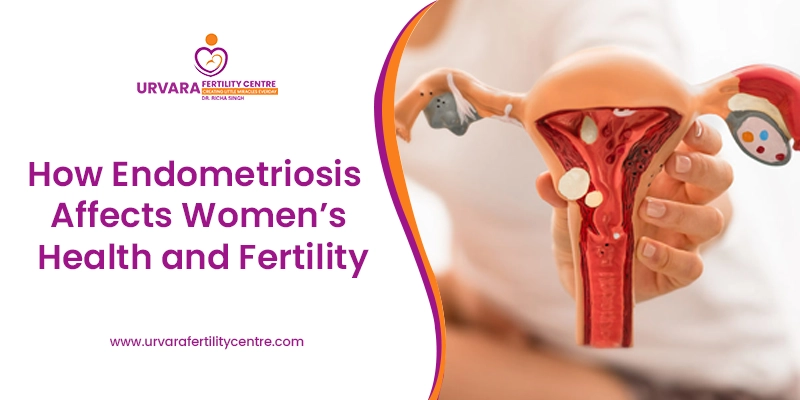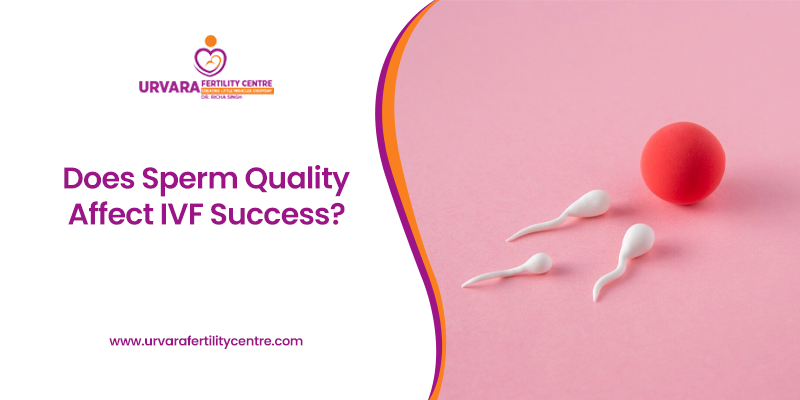If you’re experiencing pain during your periods or having trouble conceiving, you’ve likely heard the term endometriosis. But what exactly is endometriosis and how does it affect women’s health? In this blog, we’ll explain what endometriosis is, how it occurs, what the symptoms are and most importantly, how it can affect fertility. Understanding this condition is important for anyone experiencing painful periods, heavy menstrual bleeding or difficulty getting pregnant.
Endometriosis is a common but often misunderstood condition that affects millions of women worldwide. It can cause severe pain, interfere with daily life, and lead to fertility problems if left untreated. However, there are effective treatment options available that can help manage symptoms and improve fertility outcomes.
By reading this blog, you will gain a clear understanding of the causes of endometriosis, how to identify its symptoms, and the treatments available to manage this condition. If you suspect you have endometriosis or are struggling with unexplained infertility, this information will guide you on what steps to take next. You will also learn how the best IVF centre in Lucknow can assist you in your journey if endometriosis has affected your ability to conceive.
What is Endometriosis?
Endometriosis is a condition in which tissue similar to the lining of the inside of the uterus (called the endometrium) grows outside the uterus, on organs such as the ovaries, fallopian tubes, and pelvic lining. During a normal menstrual cycle, endometrial tissue inside the uterus thickens, breaks down, and is shed through menstruation. However, in women with endometriosis, the tissue outside the uterus has no way to exit the body. As a result, this tissue causes inflammation and irritation, and can lead to the formation of scar tissue and adhesions.
Although endometriosis can affect any woman, it is most commonly diagnosed in women between the ages of 25 and 40. The severity of the condition varies, with some women experiencing mild symptoms while others face severe pain and fertility problems.
What Causes Endometriosis?
The exact cause of endometriosis is not fully understood, but several factors are believed to contribute to the development of the condition. Here are some of the most common theories and causes of endometriosis:
1. Retrograde Menstruation:
One of the most widely accepted theories is that retrograde menstruation plays a role in endometriosis. This occurs when menstrual blood containing endometrial cells flows backwards into the pelvic cavity through the fallopian tubes instead of flowing out through the vagina. These cells can then implant on organs outside the uterus, causing endometriosis.
2. Genetic Factors:
Endometriosis usually runs in families, which suggests that genetics may play a role in its development. Women whose mother or sister has endometriosis are more likely to develop the condition themselves.
3. Immune System Issues:
Some research suggests that problems with the immune system may contribute to the development of endometriosis. A weakened immune system may have difficulty detecting and removing endometrial tissue that grows outside the uterus.
4. Hormonal Imbalances:
Hormones, especially estrogen, are thought to promote the growth of endometrial tissue. Estrogen may stimulate the growth of endometrial-like tissue outside the uterus, contributing to the development and spread of endometriosis.
5. Surgery or Injury:
In rare cases, endometriosis can develop after pelvic surgery, such as a C-section or hysterectomy. During surgery, endometrial cells can accidentally migrate to other areas of the pelvis.
6. Environmental Factors:
Some studies suggest that environmental toxins such as dioxins may play a role in the development of endometriosis. However, more research is needed to confirm this link.
Although these factors may contribute to the condition, it is important to note that the exact cause of endometriosis can vary from person to person.
What Are the Symptoms of Endometriosis?
Endometriosis can cause a variety of symptoms, which can vary in severity. Some women with endometriosis have mild symptoms, while others have severe pain and other complications. The most common symptoms of endometriosis include:
1. Pelvic Pain:
The most common symptom of endometriosis is pelvic pain, which can range from mild to severe. The pain is often associated with menstruation and may worsen over time. Women with endometriosis may experience pain for longer than normal menstrual cramps.
2. Pain During Intercourse:
Many women with endometriosis experience pain during or after intercourse. This pain can be deep and feel different from the usual discomfort, which often affects the pelvic region.
3. Heavy Menstrual Bleeding:
Endometriosis can cause heavy menstrual bleeding, also known as menorrhagia. Women may also bleed in between periods.
4. Painful Bowel Movements or Urination:
Women with endometriosis may experience pain during bowel movements or urination, especially during menstruation. This may be due to endometrial tissue growing on or around the bladder or intestines.
5. Infertility:
Endometriosis is one of the leading causes of infertility. In fact, up to 50% of women with endometriosis may have trouble conceiving. The condition can cause adhesions, scar tissue, and blockages in the fallopian tubes, making it difficult for the egg and sperm to meet.
6. Fatigue:
Women with endometriosis may often experience chronic fatigue due to pain or hormonal imbalances. Constant discomfort and pain can interfere with daily activities and lead to feelings of exhaustion.
7. Other Symptoms:
Other possible symptoms of endometriosis include bloating, nausea, diarrhea, constipation, and changes in the menstrual cycle. These symptoms can often be confused with other gastrointestinal or gynaecological problems, making diagnosis difficult.
Read Also:- How to Increase Sperm Count and Motility Naturally
How Endometriosis Affects Fertility
One of the most worrying aspects of endometriosis is its potential impact on fertility. Women with endometriosis often face difficulty conceiving due to various factors. Endometriosis can cause:
- Scar tissue (adhesions): These can form between organs like the ovaries, fallopian tubes, and uterus, causing fertility problems.
- Blocked fallopian tubes: Endometriosis can cause a blockage in the fallopian tubes, preventing an egg from reaching the uterus or preventing sperm from reaching the egg.
- Ovarian cysts: Endometriosis can cause cysts to develop on the ovaries, which can interfere with egg release or the implantation process.
- Abnormal uterine environment: Endometriosis can cause changes in the lining of the uterus, making it less receptive to a fertilized egg.
For women struggling with infertility due to endometriosis, treatments such as IVF can be helpful. The best IVF centre in Lucknow offers advanced fertility treatments and personalised care to help women with endometriosis fulfil their dream of becoming a mother.
Treatment Options for Endometriosis
Although there is no cure for endometriosis, various treatment options are available to help manage symptoms and improve fertility outcomes. Treatment options may include:
1. Pain Management:
Over-the-counter painkillers such as ibuprofen can help relieve mild pain. For more severe pain, a doctor may prescribe more powerful painkillers or hormonal treatments.
2. Hormonal Therapy:
Hormonal treatments, such as birth control pills, progestins, or GnRH agonists, may help reduce the growth of endometrial tissue and control symptoms.
3. Laparoscopic Surgery:
Surgical treatment may be necessary to remove endometrial tissue, cysts, or adhesions. Laparoscopy is a minimally invasive procedure that allows doctors to remove or destroy abnormal tissue while preserving the ovaries and uterus.
4. Fertility Treatments:
For women suffering from infertility due to endometriosis, treatments such as IVF, intrauterine insemination (IUI) and egg freezing can be effective in helping them conceive. The best IVF centre in Lucknow can provide the necessary support and treatment to help women with endometriosis conceive.
Conclusion
Endometriosis is a complex condition that can cause severe pain, heavy bleeding and fertility problems. Although the exact cause of endometriosis is not fully understood, there are many treatment options available to manage symptoms and improve fertility outcomes. If you suspect you have endometriosis or are having difficulty conceiving, it is important to consult a doctor as soon as possible.
At Urvara Fertility Centre, we specialise in treating women with endometriosis and providing personalised fertility solutions. If endometriosis has affected your ability to conceive, we can help you explore options such as IVF and other assisted reproductive technologies to increase your chances of conceiving.
Don’t wait to get the help you need. Contact Urvara Fertility Centre – Best IVF Centre in Lucknow today and take control of your fertility health.






